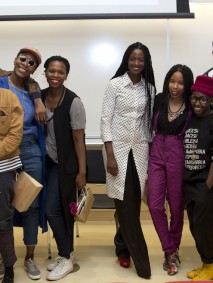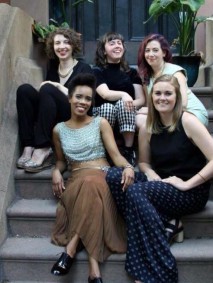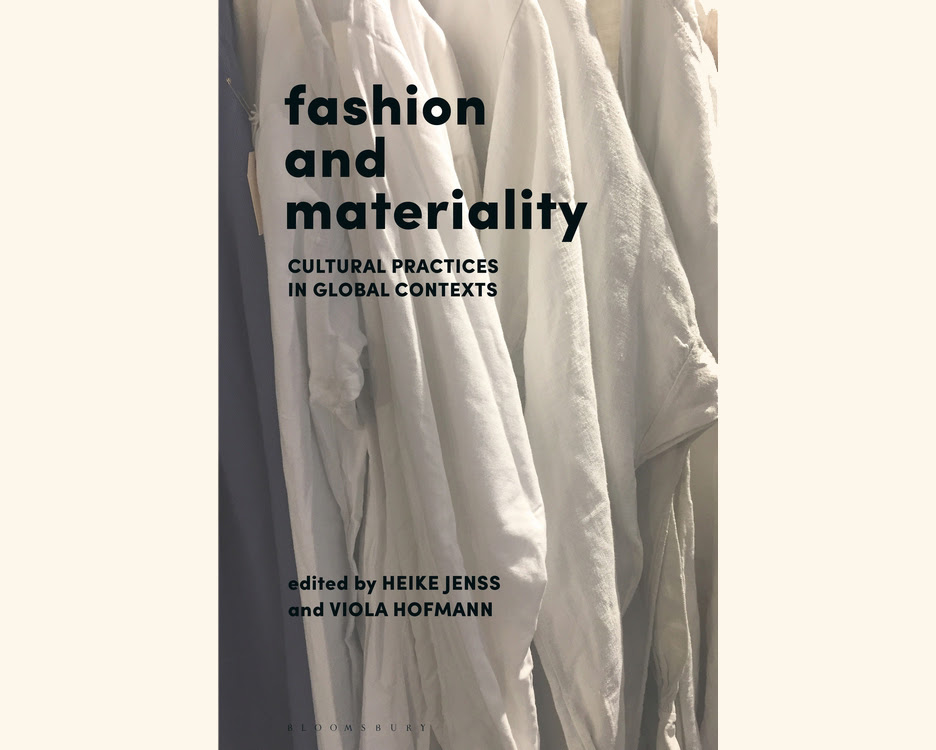Fashion Studies
Parsons School of Design's MA Fashion Studies
Beyond the Seams: Lauren Downing Peters
We’re kicking off 2016 with our BEYOND THE SEAMS series featuring our very own Lauren Downing Peters. Get to know the amazing scholar who is making waves with her groundbreaking research in academia and beyond.

What year did you graduate?
2012
What was your thesis on? How did you come to the topic?
My thesis emerged from a study of three self-proclaimed fat women, using in-depth interviews and “sartorial biographies.” My guiding question was how they negotiated a stigmatized identity with their fashionable identities.
You’re currently pursuing your PhD, what is the focus of your dissertation?
I’m pursuing my PhD at the Centre for Fashion Studies at Stockholm University where I am again thinking about plus-size fashion and fat bodies. Moving away from ethnography, however, my new focus is on the discursive construction of plus-size in American fashion media over the last century. In this vein, I’m thinking about how the discourses of large-size dress have functioned to “create” plus-size bodies, and how these discourses contain and mirror larger societal concerns, ideals and anxieties, as well as how these discourses have shifted through time. Through this study, I am examining the language and imagery used to describe and visualize fat women and large-size dress in fashion and women’s periodicals like Vogue, Harper’s Bazaar, LIFE and Ebony; industry newspapers like Women’s Wear Daily; catalogs; fashion and style guides; textbooks; and when possible, garments. It is tentatively entitled, “Plus-Size: The Discursive Construction of the Fat, Female Body in American Fashion Media, 1915-2015.
Has your research found its way outside of academia? If so, how?
To a certain extent. I recently wrote an article for Vestoj entitled, “Fashion’s Footnote: Early Uses and Shifting Meanings of ‘Plus-Size,’” although I think that Vestoj has an academic bent. I’ve also spoken with people from the media on occasion as the plus-size issue has become increasingly contentious in the past year.
Do you have any newly published works (or any in the works)?
I’ve been focusing on my dissertation research quite intensely over the past year, so I haven’t had much time to write original articles. I have, however, managed to write several exhibition reviews. My review of the exhibition, “David Bowie Is…,” which was held at the V&A in London, was recently published in The Journal of Curatorial Studies; my review of “Faking It: Originals, Copies and Counterfeits,” which was held at The Museum at F.I.T. will be published in a forthcoming issue of Fashion Theory; and my review of MCNY’s “Stephen Burrows: When Fashion Danced” will be published in the November 2016 issue of Fashion Projects.
What made you choose Parsons MAFS for graduate school?
I always had a passion for fashion, but wasn’t terribly artistic and didn’t know how to negotiate my interests in fashion with my desire to pursue a career in academia. I majored in art history in college, and during my senior year, a very generous professor indulged my interests in fashion, and guided me through the process of writing a considerable research paper on African Dutch-wax textiles and the works of the British artist Yinka Shonibare. In the process of researching this topic, I stumbled upon a wealth of fashion studies literature and the journal Fashion Theory. It just so happened that after that, the MAFS program was launched, and I knew I had to apply. I was particularly drawn to the theoretical foundations and methods of fashion studies as an academic field departing from the traditions of dress history.
What was your favorite part about the program?
One of the major reasons I loved the program was the intimate size of the seminars; I always looked forward to sitting around a seminar table with 15 other like-minded peers to discuss fashion at such a high intellectual level for upwards of three hours. I also really loved the program because we were given many opportunities to teach at The New School—both leading seminars and lecturing. It was challenging but incredibly rewarding.
Any advice to current students?
I think I have two pieces of advice for current students, the first of which being that I think that they should always pursue their interests and passions in choosing their thesis topics, no matter how outlandish, difficult or far-fetched it might seem in the beginning. Writing a thesis is a labor of love, and you must choose something that will sustain you for over a year. And as they say, where there’s a will, there’s a way. Some of the best theses came from people who were truly passionate about their topic. Second, I would urge students to take advantage of every opportunity offered by the program and by The New School community at-large. It is an incredibly special place to be, and I regret not going to every single open lecture, workshop, exhibition opening and cocktail reception while I was there!
Lauren was interviewed by Rikki Byrd, a current MAFS candidate.



